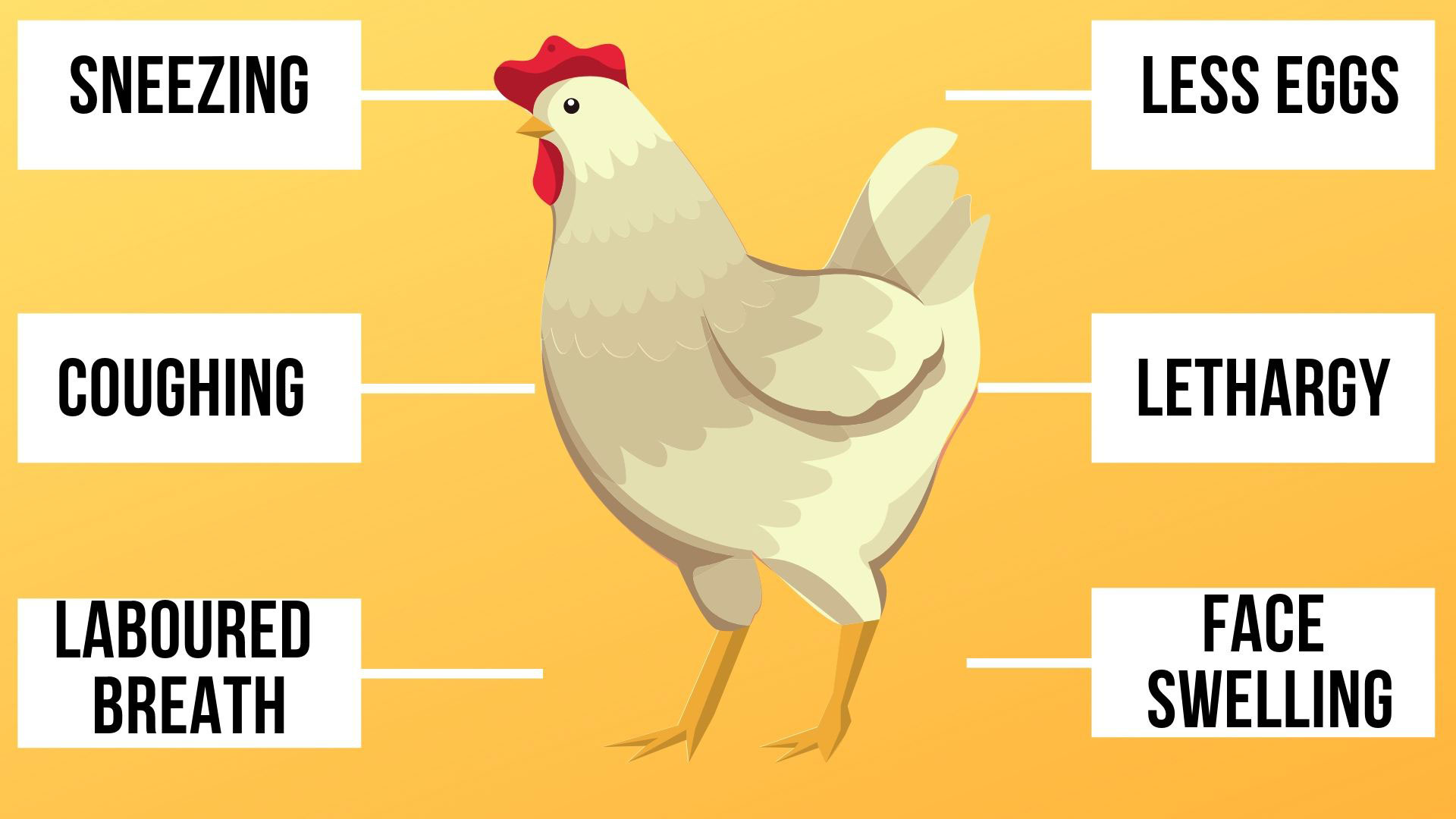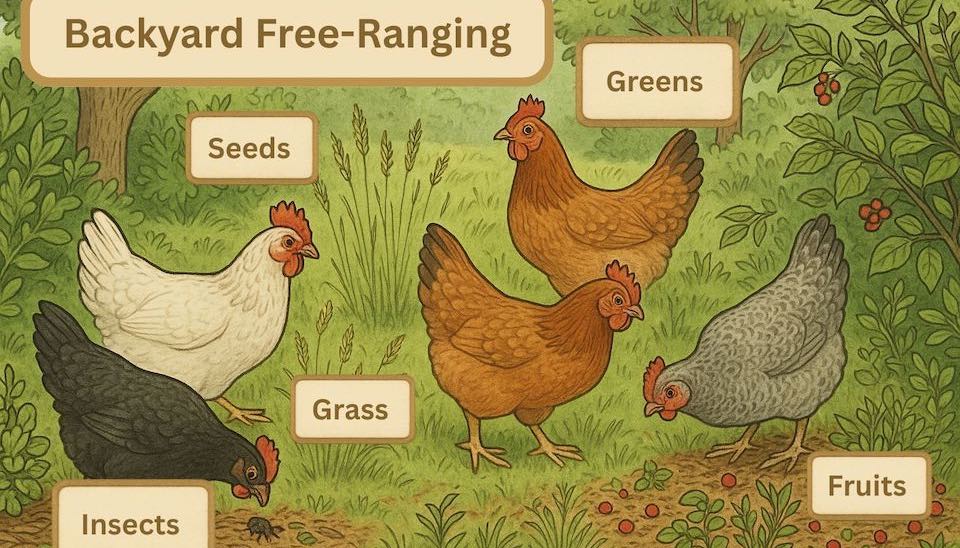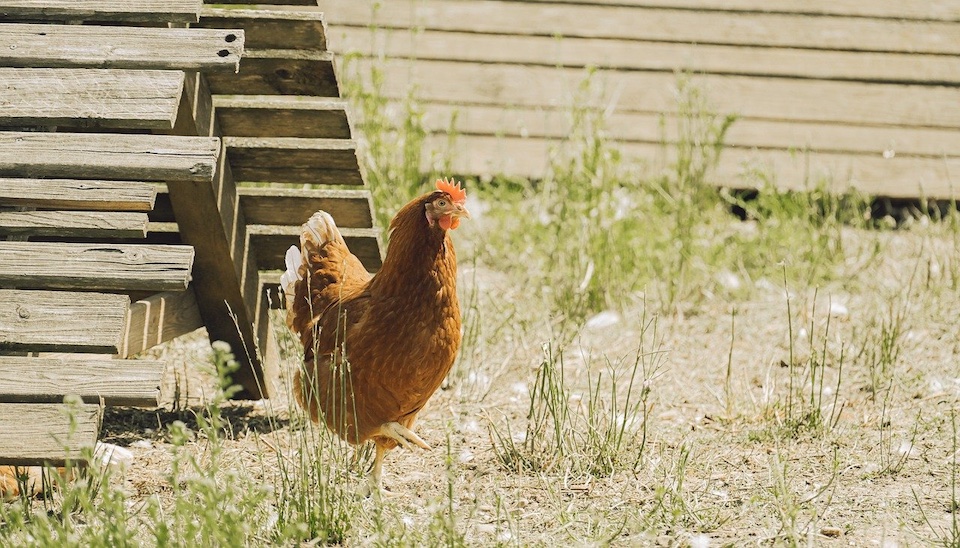Chicken Wheezing: Identify Chicken Respiratory Disease
Chicken Wheezing: Identify Chicken Respiratory Disease.
If your chicken is coughing, sneezing, or wheezing, it might be dealing with a respiratory infection. Respiratory illness can be dangerous in chickens and it is vital to treat it early, as recovery is rare without intervention. In addition to this, if you do not treat quickly the illness may spread to the rest of the birds in your flock.
Products like VetRx Poultry Remedy offer effective support for respiratory illnesses, while proper coop management and preventative care can reduce the risk of reinfection.

Diagnose Chicken Respiratory Disease
A sneezing chicken may indicate a serious health problem with your bird. Cold-like symptoms such as wheezing, coughing, sneezing and trouble breathing should not be taken lightly.
In actual fact, unlike humans - chickens do not suffer from colds or flus, so respiratory symptoms usually the sign of something much more serious!
As with many chicken illnesses, respiratory infections tend to arise when chickens are already stressed by environmental triggers. The most common environmental triggers include:
- Extreme temperatures or damp
- Poor nutrition
- Parasites
- Lack of space / overcrowded conditions
- Poor living conditions
Types of Respiratory Illnesses in Chickens
While Chicken Respiratory Disease (CRD) caused by Mycoplasma gallisepticum is one of the most common culprits, there are several other types of respiratory illness that can affect adult chickens. These may be bacterial, viral, fungal, or parasitic in nature. Correct diagnosis is essential for choosing the right treatment and protecting the rest of your flock.
Here are the most common types:
- Mycoplasma gallisepticum (Chicken Respiratory Disease or CRD)
A slow-developing bacterial infection causing coughing, wheezing, nasal discharge, bubbling eyes and swollen sinuses.
Healthy chickens can often fight off the bacteria that causes CRD, so the disease most often develops in flocks that are stressed, have poor nutrition or dirty living conditions. Birds often remain carriers even after treatment and the disease can be chronic in infected birds, with symptoms reoccurring in times of stress.
Many backyard flocks are infected with CRD but the chicken keeper doesn't know because symptoms are so mild.
- Infectious Bronchitis (IB)
A highly contagious viral disease. Although it can cause respiratory symptoms, in adult hens IB is more likely to cause a decease in egg production as well as mishapen-eggs with thin, rough or wrinkled shells and watery egg whites even when fresh. IB often runs its course without treatment, but will often reduce egg production in infected hens for life.
- Infectious Laryngotracheitis (ILT)
A serious viral disease that may cause bloody mucus, gasping, or a distinctive “pump-handle” breathing motion. This disease spreads quickly and often requires vet support for diagnosis and care. Recovered birds can continue to carry the disease.
- Avian Influenza (AI)
Rare but serious, chickens tend to contract AI through contact with wild birds. Mild strains of the disease are most common, while highly pathogenic strains can quickly cause the death of your whole flock. Avian Influenza is a notifiable disease, so contact your vet if you suspect your birds are infected. Symptoms include breathing difficulties, lethargy, diarrhoea and purple discolouration or swelling of the head or neck.
Need to know more about Avian Influenza? Click here.
- Infectious coryza
In addition to respiratory symptoms, look for a foul-smelling discharge from the eyes or nose. This disease is more likely to affect younger birds within a month or two of being added to an established flock. It can reduce egg production in adult hens that are otherwise asymptomatic.
- Gapeworm
This parasitic worm attaches to the trachea and causes gasping, neck-stretching, and coughing. It is not contagious bird-to-bird but is picked up from contaminated environments.
Click here for instructions on recognising and treating gapeworm.
- Newcastle disease
Mild strains of this disease are common, and cause respiratory symptoms and diarrhoea. Severe strains can cause paralysis and sudden death.
More information about the symptoms and treatment of Newcastle disease is available here.
Symptoms of Chicken Respiratory Illness
Most chicken respiratory illnesses, and CRD, in particular, tend to develop fairly slowly. Catching the infection early can be key to a good recovery, so it is vital to be on the lookout for ill-health in your flock.
Signs that your chickens might be suffering from a respiratory illness include:
- Sneezing
- Coughing
- Wheezing or laboured breathing
- Discharge from the nostrils and/or eyes
- Swelling around the eyes and/or beak
- Poor comb or wattle colour
- Decreased appetite
- Lethargy
- Loss of condition
- Reduced egg production
If you think that your chicken may have a respiratory illness, listen to its chest. It is quite likely that you will hear a rattling, congested (phlegmy) sound when they breathe.
If chickens are having difficulty breathing (stretching their neck and coughing, or panting) but do not display other symptoms they may be suffering from gapeworm. For help diagnosing or treating gapeworm, click here.
How to Treat Chicken Respiratory Infections
Most chicken respiratory diseases require medical treatment and, no matter the cause, all sick chickens will benefit from good nursing care. If untreated, some diseases such as CRD can eventually cause the death of healthy birds.
In order to treat chicken respiratory infection, follow these steps:
1. Isolate the disease
Chickens are social animals, as such infectious diseases can spread at a rapid rate throughout your flock. It is vital to isolate sick birds at the first sign of illness to protect the rest of the flock. This includes putting sick birds in quarantine, separate to the rest of the flock, and supplying the infected birds with their own supply of drinking water and feed.
Thoroughly clean and disinfect the coop, including feeders and waterers, after removing sick birds.
It is important to remember that some chicken respiratory illnesses, such as Avian Influenza, can be contracted by humans. While this is very rare, it is important to take precautions to protect yourself as well, when you are handling sick birds.
2. Care for sick birds
The key elements that will contribute to a chickens recovery are hydration, nutrition and also warmth.
Pay particular attention to hydration. If the disease is severe, it may be necessary to use a spoon or dropper to give the sick bird water. This care may be necessary until the bird fully recovers enough to drink on their own.
Adding electrolytes and vitamins to the water can help the bird to recover and prevent hydration.
VetRx Poultry Remedy can be used to relieve respiratory symptoms in chickens suffering from respiratory illnesses.
If you end up treating your chickens with antibiotics, we strongly recommend that you follow the antibiotics with a course of probiotics such as 2 Pak Avian Probiotic.
3. Treat the infection
The most widespread respiratory illness in chickens is CRD, caused by the bacteria Microplasma gallisepticum. However, laryngitis, bronchitis, tracheitis and even pneumonia, are also common and each requires particular treatment. In addition to providing care, seek a diagnosis for the disease and consult your vet for treatment options.
4. Reduce the risk of reinfection
Proper coop management is essential to prevent the spread of disease. After any illness, thoroughly clean the coop to reduce the risk of reinfection.
Ensuring that chickens are healthy will also prevent reinfection.
As well as helping to treat CRD and other infections, VetRx Poultry Remedy can be used as a preventative to reduce the risk of bacterial illnesses.
Buy Vetrx - Available in two sizes - Shop Now





